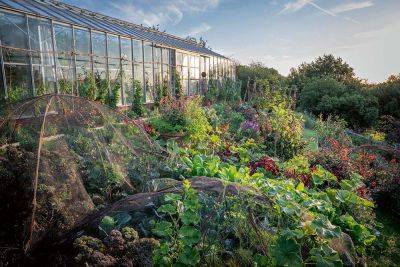Unparalleled in their August marvellousness at Perch Hill are of course tomatoes. The smell of the stems and leaves that lingers after pinching is almost as good as the taste of the fruit. We grow groves of tomatoes in the greenhouse here, and these are sometimes supplemented with the hardier and more reliable ones growing in a sunny spot in the garden. And we plant lots of basil in amongst and through our tomato jungle.
note to self: finally, a no-mow lawn!
21.07.2023 - 22:47 / awaytogarden.com
I HAVE FINALLY CRACKED THE CODE of a no-mow lawn. How’s your piece of turf looking right now? Me, I’m thinking tundra is the new green.

Mowing Techniques & Tips
When one man went to mow it was to mow a meadow. Do you want to let your lawn get into that state? If not here are some tips but probably not enough to get you a stately home lawn.
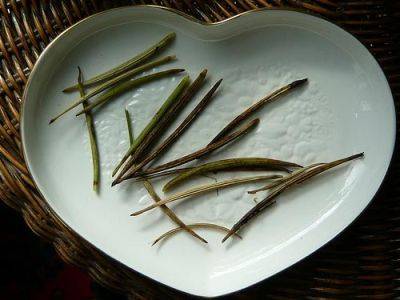
Notes from my Seed Bank
Collected Californian poppy Eschscholzia pods and seeds
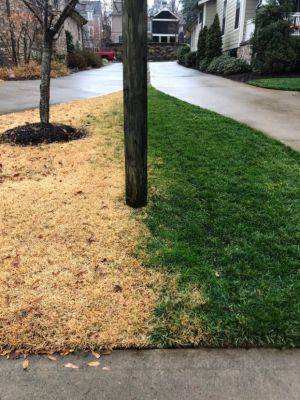
Why Is My Lawn Brown But My Neighbor’s Is Green?
South Carolina is a very special place. From the coast to the foothills of the Appalachian Mountains, South Carolina has a diversity of climates and landscapes. The diversity of climates allows for different grasses to flourish. Warm season grasses such as zoysia, St. Augustinegrass, bermudagrass, centipedegrass, and bahiagrass flourish at the coast throughout the year, but those grown in the upstate go dormant in the winter. In the dormant stage, the grass turns brown and looks dead, but new growth will appear in spring. Cool season grasses, such as ryegrass and certain fescues, grow best primarily in the upstate but go dormant, or do not survive the heat of summer. Here too, the grass looks dead, with regrowth appearing as the weather begins to turn cool in fall and flourish through spring. Dormant grass still has live roots in the ground that require water, just not as much as when they are actively growing. Unless it has been uncommonly dry or windy, natural rain events are enough to sustain dormant grasses.
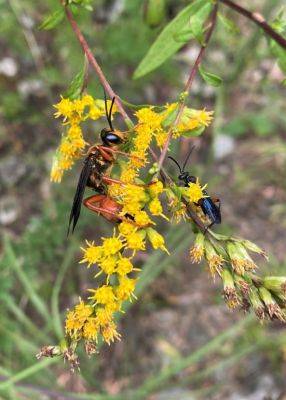
Native Notes – Goldenrod
Thars gold in them thar hills (and in the flatlands too)!
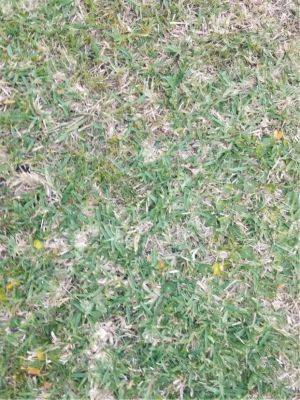
Mowing Height Matters
Mowing height has a significant impact on the overall health of your lawn. Lawn grasses only tolerate mowing; it is an injury that requires recovery.
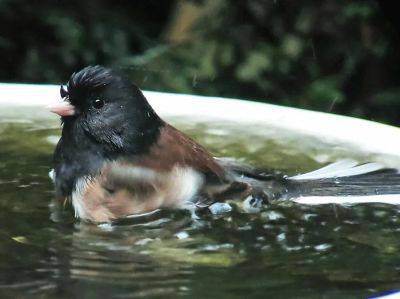
Birdnote q&a: dawn chorus quiets, but what are birds doing in midsummer?
“Like the week in Lake Wobegon, it’s been mostly quiet,” says Ellen. “For the most part, the birds have stopped singing.” Turning their attention away from establishing territories, finding mates and having families—what the songs were mostly about—they’ve shifted focus. “Some birds even lose the ability to sing after the breeding season is over,” she adds (learn more about that in this BirdNote show and transcript).In the Q&A that follows, Ellen’s answers contain green links to audio files from BirdNote’s archive that you won’t want to miss. A recap of earlier stories in our series is at the bottom of the page, along with information on how to get BirdNote daily.the midsummer bird q&a with ellen blackstoneQ. So what are the birds doing as we enter midsummer?A. Many birds–wrens, robins, and others–may raise more than one brood in a breeding season. Depending on what part of the country you call h
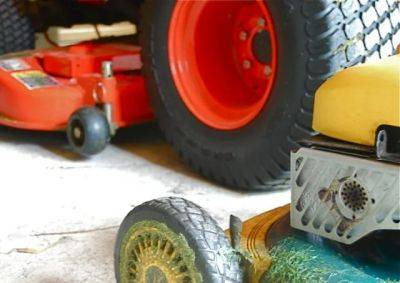
Tell the truth: do you like to mow?
IT’S A SIMPLE QUESTION: DO YOU LIKE TO MOW? Unless, of course, like me you have a love-hate thing going with mowing. I am always irritated that there’s mowing to be done.
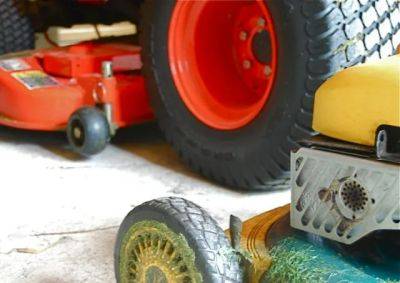
Long-weekend rant: do you like to mow? (part 2)
I HAVE A LOVE-HATE THING GOING WITH MOWING: I always feel it’s a time-waster, but I am also always relieved there’s “mowing to be done” since that means legitimate escape from things like writing the book I have due. Mowing has immediate, tangible results; you cut grass blades, and they look cut. You try to write and, well, sometimes you don’t get any words. So tell me, do you li
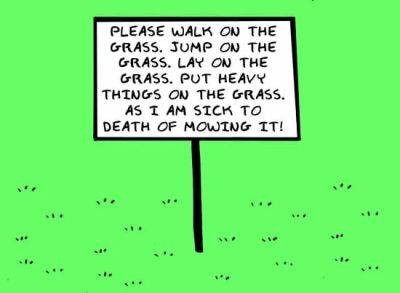
Doodle by andre: entering the no-mow zone
YES, PLEASE; HAVE YOUR WAY WITH MY LAWN, TOO; I hear you, Andre. As much as I basically like to mow, I don’t like it as much as the grass apparently liked to grow this wet, cool year.
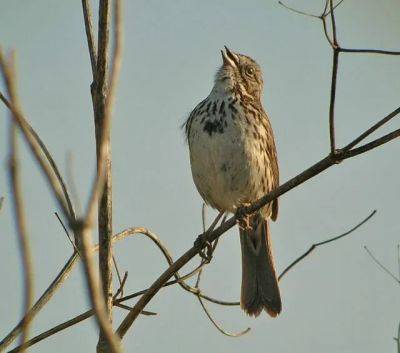
Birdnote q&a: the song sparrow, often ready with a tune
Yes, said my friend Ellen Blackstone of the BirdNote public-radio program, who has been the tour guide for our ongoing series of bird stories here on the blog. (Browse all past installments.)The part of the bird’s brain that’s used for singing shrinks to lighten the bird’s body mass in the offseason, she explained (and here’s the link to hear more on that). In fall and winter, there is no mating ritual; no need to stake out a territory.Many birds can still s
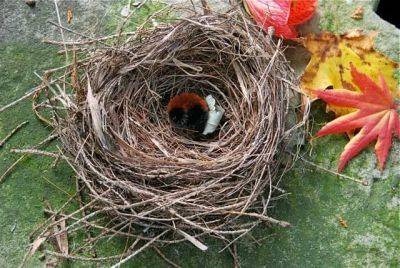
A note of thanks, news, and my winter plans
The philosophy of A Way to Garden–and my philosophy in 25-plus years of digging holes–is that the garden is a 365-day companion, and that the season never really ends. With that in mind I will continue posting (though, like last winter, on a slightly lighter schedule than in April through October) and also sending newsletters in the hopes that you, too, like to keep talking and thinking plants no matter what the weather has in store. (Register to receive them by clicking here.)I have been stockpiling photos of hot perennials and woody things we haven’t covered yet; taking notes on such topics as which varieties of chard and kale were best of the several I grew; prepping more FAQ pages on key how-to topics; researching how those of us in the East can fend off a repeat of tomato troubles next year, if that’s possible. And more–more of the usual stuff and unusual stuff I plan to keep producing even if it snows from tomorrow until Easter. (Bite my tong
